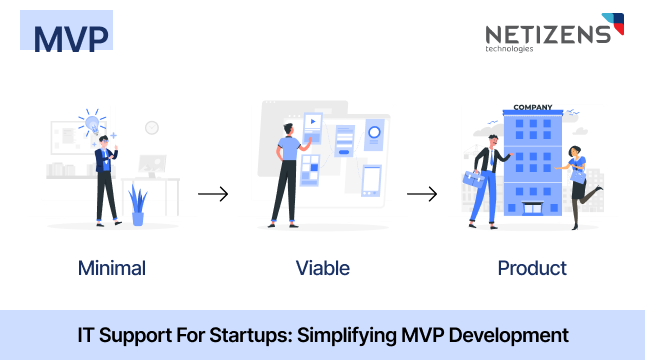This website uses cookies so that we can provide you with the best user experience possible. Cookie information is stored in your browser and performs functions such as recognising you when you return to our website and helping our team to understand which sections of the website you find most interesting and useful.
Comprehensive Guide to the Best Web Hosting for Small Businesses in the USA

Imagine your small business thriving online. Customers discover your amazing products or services with ease. Your website loads lightning-fast, showcasing your brand and offerings in a professional light. This online success story starts with a crucial decision: choosing the best web hosting for your small business.
Why Web Hosting Matters for Your Small Business
In today’s digital age, your website is your virtual storefront. It’s where you connect with potential customers, build trust, and ultimately drive sales. But just like a physical store needs a solid foundation, your website needs a reliable web hosting service.
The Foundation of Your Online Presence
A web hosting company essentially rents out space on its servers to store your website’s data, making it accessible to visitors anytime, anywhere. Think of it as the invisible engine that powers your website, keeping it up and running 24/7.
Building Trust and Credibility
A slow-loading website or frequent downtime can damage your reputation. A reliable web host ensures a smooth user experience, which fosters trust and credibility with your customers. They’ll perceive your business as professional and dependable, more likely to convert into loyal patrons.
Impact on Customer Experience
The speed and performance of your website directly impacts your customer experience. Imagine a hungry customer waiting impatiently at a restaurant with slow service. A slow website translates to frustrated visitors who might abandon ship before even exploring your offerings. A good web host ensures a seamless experience, keeping customers engaged and coming back for more.
Understanding Web Hosting Types
Now that you grasp the importance of web hosting, let’s delve into the different types available. Each option caters to specific needs, so understanding the differences helps you choose the perfect fit for your small Business.
Shared Hosting: Affordable But With Limitations
Shared hosting is the most budget-friendly option. Imagine a bustling apartment complex where multiple tenants share resources like electricity and water. Similarly, shared hosting places your website on a server alongside other websites.
-
Advantages of Shared Hosting:
- Cost-effective: Perfect for small businesses with limited budgets starting their online journey.
- Easy to set up: Often user-friendly with beginner-friendly control panels.
-
Disadvantages of Shared Hosting:
- Limited resources: Performance can be affected by traffic spikes on other websites sharing the server.
- Less control: Customization options might be restricted compared to other hosting types.
Virtual Private Server (VPS) Hosting: Scalable Power
A VPS offers a middle ground between shared and dedicated hosting. Think of it as your own private apartment within a larger building. You share the physical server but have dedicated resources like CPU, RAM, and storage, offering more control and scalability than shared hosting.
-
Advantages of VPS Hosting:
- Improved performance: Dedicated resources ensure better website speed and stability compared to shared hosting.
- Increased scalability: You can easily upgrade your VPS plan as your website grows.
- Greater control: More control over server configuration compared to shared hosting.
-
Disadvantages of VPS Hosting:
- Slightly higher cost: VPS generally costs more than shared hosting but is less expensive than dedicated hosting.
- Requires some technical knowledge: Managing a VPS might require some technical expertise.
Cloud Hosting: Flexible and Reliable
Cloud hosting utilizes a network of servers instead of a single physical server. Imagine your website data stored across multiple data centers, offering flexibility and scalability. If one server experiences an issue, others can take over seamlessly, ensuring high uptime.
-
Advantages of Cloud Hosting:
- Scalability on demand: Easily scale resources up or down as your website traffic fluctuates.
- High uptime and reliability: Redundant servers ensure minimal downtime even during server issues.
- Cost-effective: Pay only for the resources you use, making it budget-friendly for businesses with fluctuating traffic.
-
Disadvantages of Cloud Hosting:
- Potential vendor lock-in: Switching cloud hosting providers might be more complex compared to other options.
Key Considerations for Choosing a Web Host
Now that you’re familiar with the various web hosting types, let’s explore some crucial factors to consider when making your choice:
Website Traffic and Scalability Needs
- How much traffic does your website currently receive?
- Do you anticipate significant growth in the future?
Choose a hosting plan that can accommodate your current traffic and has the ability to scale as your website grows. Shared hosting might suffice for a new website with low traffic, while a VPS or cloud hosting solution might be better suited for businesses with fluctuating traffic or future growth plans.
Features and Functionality
- What features are essential for your website?
- Do you need e-commerce functionality, email hosting, or database support?
Pricing and Budget
- How much can you afford to spend on web hosting?
Web hosting providers offer various plans with different price points. Consider the features included in each plan and choose one that aligns with your budget and website needs. Don’t be tempted by the cheapest option if it lacks essential features.
Uptime and Reliability
- How important is it for your website to be constantly accessible?
Look for a web host with a proven track record of high uptime (percentage of time your website is online). Downtime can lead to lost sales and damage your reputation. Most web hosting providers offer uptime guarantees – choose one with a high percentage (ideally 99.9% or higher).
Top Web Hosting Providers for Small Businesses
Once you’ve considered the key factors, it’s time to explore some popular web hosting providers catering to small businesses:
Liquid Web :
Liquid Web is a leading provider of managed hosting and cloud services, offering robust solutions tailored to businesses of all sizes. With a focus on reliability, security, and exceptional customer support, Liquid Web empowers businesses to thrive online with peace of mind.
Name cheap :
Namecheap is a leading domain registrar and web hosting provider, offering affordable services to individuals and businesses worldwide. Known for its user-friendly interface and excellent customer support, Namecheap empowers users to establish their online presence with ease
GoDaddy:
A household name in the domain registration world, GoDaddy also offers web hosting solutions. They provide an all-in-one package for businesses seeking a convenient solution for domain registration and web hosting. However, their hosting plans might not be as feature-rich as some specialized web hosting providers.
Additional Factors to Consider When Choosing a Web Host
Here are some additional considerations that might be relevant to your specific needs:
- E-commerce Functionality: If you plan to sell products online, ensure your web host offers features like shopping cart software and secure payment processing options.
- Location of Servers (Global Reach Considerations): If you target a global audience, consider the location of the web host’s servers. Servers closer to your target audience can improve website loading speed.
- Environmental Sustainability Efforts: For some businesses, aligning with eco-friendly practices is a priority. Research web hosting providers committed to using renewable energy or carbon offset programs.
Taking the Next Step: Selecting Your Ideal Web Host
By now, you’re equipped with the knowledge to choose the best web hosting solution for your small business. Here’s how to move forward:
- Evaluate Your Needs and Priorities: Reflect on your website’s traffic, budget, and essential features.
- Compare Hosting Providers and Plans: Research different web hosting providers and compare their features, pricing, and customer reviews.
- Sign Up and Get Started! Once you’ve chosen a web host, sign up for a plan that aligns with your needs and get your website up and running!
Conclusion: Investing in a Reliable Web Host for Your Business Growth
Choosing the right web hosting provider is a crucial investment for your small business. A reliable web host ensures a smooth online experience for your customers, fostering trust and promoting growth. Remember, your website is your digital storefront – invest in a solid foundation to unlock its full potential!

Let's Start Your Project
Get free consultation for your digital product idea to turn it into reality!
Get Started





